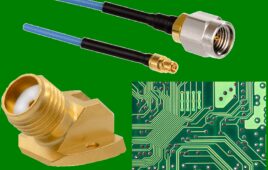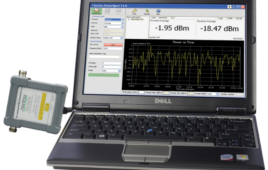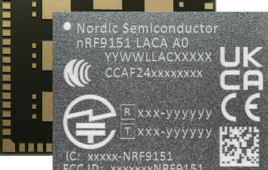Information technology is transforming cars faster than anyone expected, and it can do more than let drivers update their statuses on  Facebook. It could also save them a lot of fuel.
Facebook. It could also save them a lot of fuel.
These days, the design and control of more fuel-efficient engines and hybrid vehicles depends on computers. Yet the potential of IT to save fuel goes beyond improving a car’s fuel economy rating. It could save fuel by gradually reducing—and before too long eliminating—the need for drivers.
Drivers cause all sorts of problems. They hit the brakes too much and accelerate too quickly. That can waste a third of the gas on a typical drive.
Bad driving also creates traffic jams. In the U.S., drivers waste two billion gallons of fuel each year while stuck in traffic, according to a study by the Texas Transportation Institute. Just think of the gas burned in that 2010 Chinese traffic jam that lasted almost two weeks.
Until recently, the idea of taking drivers out of the loop has always seemed a distant possibility. Engineers in Detroit imagined a complex system, in which all of the vehicles on the road would be controlled by a central computer. The infrastructure required would be expensive. And the system wouldn’t work until every vehicle on the road was equipped with the necessary technology, says Lawrence Burns, the retired head of research and development at General Motors.
But now, Burns says, technologies pioneered in several companies are making it “a lot faster for the world to get on with it.” Processors are speeding up and sensors are becoming cheaper, and almost every automaker now offers cars equipped with adaptive cruise control, which uses radar to sense vehicles in the lane ahead and change the car’s speed to avoid accidents. And Google’s experimental automated Priuses proved cars could drive themselves entirely on public roads surrounded by conventional vehicles. In 2013, BMW will start selling a production version of its i3 concept car, which can drive itself at speeds of up to 25 miles per hour.
Simulations suggest that only a few cars need to have the technology to make a significant impact. If 1 percent to 5 percent of cars can send real-time data about their speed to a central hub, traffic jams can be spotted within five minutes, and cars equipped with GPS systems can be offered alternate routes to avoid them.
Adaptive cruise control could also prevent many traffic jams from forming in the first place. Drivers tend to change speed on hills or when approaching tunnels, which can cause traffic to bunch up. They also brake too much in response to vehicles ahead of them. After a few drivers in a lane do this, traffic can come to a halt. Cars with adaptive cruise control keep a steady speed on hills and brake more gradually if cars slow down.
Werner Huber, who heads driver assistance systems development at BMW, estimates that if one in five cars had adaptive cruise control, it would smooth out traffic by interrupting the chain reaction that causes traffic to come to a standstill. If all cars had it, it could increase the capacity of roads by 20 percent and decrease fuel consumption by 83 percent in congested areas, according to a study by researchers in Japan.
The total impact of vehicle automation on fuel consumption is hard to predict. When traffic congestion eases, more people may decide to commute by car, or live further from work, says Tim Lomax, research engineer at the Texas Transportation Institute.
Ultimately, automakers may find that the technology is the only way to keep driving satisfying. At a recent Mobile World Conference in Barcelona, Bill Ford, chairman of Ford, warned of an impending catastrophe as cities become more congested. He said vehicle automation will be key to cars moving at all, since some predict that the number of vehicles on the road will increase from one billion to four billion. “When we do the math, and when we look at the global vehicle population, there’s cause for real concern if we do nothing. That raises the possibility of global gridlock. A never-ending traffic jam that wastes time, energy, and resources.”
Posted by Janine E. Mooney, Editor
April 23, 2012




